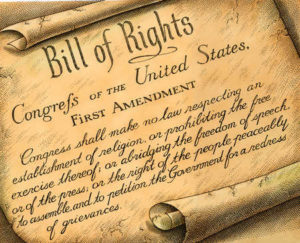 An attorney paid a sanction and then challenged the sanctions order as part of the appeal from the final judgment in the action. In reviewing an objection based on mootness, the Fifth Court observed that while an appeal becomes moot “when a judgment debtor voluntarily pays and satisfied a judgment rendered against him,” the purpose of that rule is “to prevent appellants from misleading their opponents into believing a controversy is over when it is not.” Thus, “payment on a judgment will not moot an appeal of that judgment if the judgment debtor clearly expresses an intent that he intends to exercise his right of appeal and appellate relief is not futile.” Here, before the attorney paid the sanction, the other side had notice of his intent to appeal when payment was made, so the appeal was justiciable. Kamel v. AdvoCare Int’l, L.P., No. 05-16-00433-CV (March 28, 2017) (mem. op.)
An attorney paid a sanction and then challenged the sanctions order as part of the appeal from the final judgment in the action. In reviewing an objection based on mootness, the Fifth Court observed that while an appeal becomes moot “when a judgment debtor voluntarily pays and satisfied a judgment rendered against him,” the purpose of that rule is “to prevent appellants from misleading their opponents into believing a controversy is over when it is not.” Thus, “payment on a judgment will not moot an appeal of that judgment if the judgment debtor clearly expresses an intent that he intends to exercise his right of appeal and appellate relief is not futile.” Here, before the attorney paid the sanction, the other side had notice of his intent to appeal when payment was made, so the appeal was justiciable. Kamel v. AdvoCare Int’l, L.P., No. 05-16-00433-CV (March 28, 2017) (mem. op.)
Monthly Archives: March 2017
 In Glassdoor Inc. v. Andra Group LP, the Fifth Court affirmed an order granting a Rule 202 petition about online reviews of a business as an employer, offering several pointers for the handling of such petitions:
In Glassdoor Inc. v. Andra Group LP, the Fifth Court affirmed an order granting a Rule 202 petition about online reviews of a business as an employer, offering several pointers for the handling of such petitions:
- The trial judge limited the scope of the examination to two posts, and specific items within them;
- The movant established its potential business disparagement damages with three affidavits about the effect of the posts on its recruiting;
- The statements at issue went beyond “hyperbole or mere personal opinion” to make specific “accusations of illegal conduct that are capable of being proved true or false”; and
- The First Amendment rights of the anonymous reviewers to speak anonymously “must be balanced against the right of others to hold accountable those who engage in speech not protected by the First Amendment.”
A “mirror image” anti-SLAPP motion was properly rejected for the same reasons that the Rule 202 petition was granted. No. 05-16-00189-CV (March 24, 2017) (mem. op.)
 If Dr. McCoy made his famous pronouncement, not as to an Enterprise crew member in a red shirt, but during litigation about another defendant by filing a “suggestion of death,” would he make a general appearance in that litigation? The Fifth Court answered “no” in Hegwer v. Edwards, primarily citing a line of cases holding that making and filing a Rule 11 agreement does not amount to a general appearance. No. 05-15-01464-CV (March 22, 2017).
If Dr. McCoy made his famous pronouncement, not as to an Enterprise crew member in a red shirt, but during litigation about another defendant by filing a “suggestion of death,” would he make a general appearance in that litigation? The Fifth Court answered “no” in Hegwer v. Edwards, primarily citing a line of cases holding that making and filing a Rule 11 agreement does not amount to a general appearance. No. 05-15-01464-CV (March 22, 2017).
“I-35 argues that, although the guaranty itself does not specify an interest rate, the guaranty incorporates the Note and the two must be read together. We agree.” Interstate 35-Chisam Road LP v. Moyaedi, No. 05-16-00196-CV (March 20, 2017) (mem. op.)
In D Magazine Partners LP v. Rosenthal, reviewing the work of the Dallas Court of Appeals in a high-profile anti-SLAPP case, the Texas Supreme Court observed about Wikipedia:
“Given the arguments both for and against reliance on Wikipedia, as well as the variety of ways in which the source may be utilized, a bright-line rule is untenable. Of the many concerns expressed about Wikipedia use, lack of reliability is paramount and may often preclude its use as a source of authority in opinions. At the least, we find it unlikely Wikipedia could suffice as the sole source of authority on an issue of any significance to a case. That said, Wikipedia can often be useful as a starting point for research purposes. In this case, for example, the cited Wikipedia page itself cited past newspaper and magazine articles that had used the term ‘welfare queen’ in various contexts and could help shed light on how a reasonable person could construe the term.”
But, as a matter of the relevant substantive law, and the nature of Wikipedia, t he Texas Supreme Court found overreliance on a Wikipedia entry when “the court of appeals utilized Wikipedia as its primary source to ascribe a specific, narrow definition to a single term that the court found significantly influenced the article’s gist. Essentially, the court used the Wikipedia definition as the lynchpin of its analysis on a critical issue. . . . ”
he Texas Supreme Court found overreliance on a Wikipedia entry when “the court of appeals utilized Wikipedia as its primary source to ascribe a specific, narrow definition to a single term that the court found significantly influenced the article’s gist. Essentially, the court used the Wikipedia definition as the lynchpin of its analysis on a critical issue. . . . ”
Accordingly, Dallas-area practitioners should pay special attention to these statements, if online resources such as Wikipedia play more than a general background role in a legal argument.
Echoing a line of cases from the Fifth Circuit about attorney immunity, and applying the Texas Supreme Court’s opinion in Cantey Hanger LLP v. Byrd, 467 S.W.3d 477 (Tex. 2015), the Fifth Court affirmed a summary judgment for a law firm involved in a foreclosure, noting: “The evidence shows Mackie Wolf provided appellants with a copy of the original note that appellants executed and all actions taken by Mackie Wolf were made in connection with its representation of its clients, BONY and Ocwen. The actions taken by Mackie Wolf that are the subject of this litigation—obtaining the note and presenting it to appellants—are the kinds of actions that are part of the discharge of an attorney’s duties in representing a party.” Santiago v. Mackie Wolf, No. 05-16-00394-CV (March 10, 2017) (mem. op.)
 A useful reminder about timeliness appears in Duchouquette v. McWhorter, in which the appellant filed a late notice of appeal within the 15-day grace period, but neglected to move for leave to extend the deadline. In addition to dismissing the appellant’s appeal, the Fifth Court dismissed the cross-appeal noticed 8 days after the appellant’s: “[T]he Court does not have jurisdiction over a cross-appeal where the original notice of appeal is untimely.” No. 05-17-00041-CV (March 13, 2017) (mem. op.)
A useful reminder about timeliness appears in Duchouquette v. McWhorter, in which the appellant filed a late notice of appeal within the 15-day grace period, but neglected to move for leave to extend the deadline. In addition to dismissing the appellant’s appeal, the Fifth Court dismissed the cross-appeal noticed 8 days after the appellant’s: “[T]he Court does not have jurisdiction over a cross-appeal where the original notice of appeal is untimely.” No. 05-17-00041-CV (March 13, 2017) (mem. op.)
Together with Chrysta Castañeda, I recently wrote a short article for the State Bar Litigation Section about often-forgotten Texas Rules of Civil Procedure that can help keep legal issues alive at trial.
